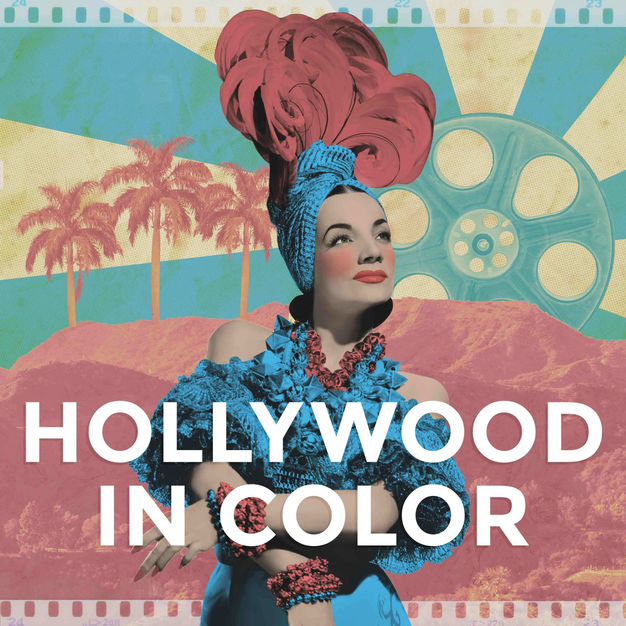
Hollywood in Color
Diana Martinez
Hollywood in Color is a new podcast telling the stories of the stars usually left out of entertainment history — the people of color in front of and behind the camera who have been representing for over a century. Host Diana Martinez has a PhD in film and media studies and has written for Slate, The Atlantic, and Women in Hollywood.
- 41 minutes 33 secondsSonic Cinema: The Making of The Bodyguard
This is episode 2 of Sonic Cinema: a series looking at a few starring history’s most iconic musicians. Today — The Making of The Bodyguard.
All episodes of Hollywood in Color are heavily researched. Here are the major sources used for this episode:
Whitney directed by Kevin Macdonald (documentary)
Whitney: "Can I Be Me?" directed by Nick Broomfield and Rudi Dolezal (documentary)
Romance and Rights: The Politics of Interracial Intimacy, 1945-1954 by Alex Lubin (book)
Interracial Romance as a Staged Spectacle in "Made in America," "Bringing Down the House" and "Guess Who" by Helene Charlery (article)
Working Girls: Gender and Sexuality in Popular Cinema (Chapter 8: Music, Video, Cinema: Singers and Movie Stars) by Yvonne Tasker
Whitney Houston 1963-2012 by Robin Roberts (article)
Nationality, Race, and Gender on the American Pop Charts: What happened in the '90s? by Alan Wells (article)
Whitney is Every Woman: Cultural Politics and the Pop Star by Marla Shelton (article)
Divafication: The deification of modern female pop stars by Linda Lister (article)
A Vision of Love: An Etiquette of Vocal Ornamentation in African-American Popular Ballads of the Early 1990s by Richard Rischar (article)
‘Not black enough’: the identity crisis that haunted Whitney Houston by Steve Rose (TheGuardian.com)
Remember When Whitney Houston Got Booed for Being Too White? by Rich Juzwiak (Gawker.com)
The Two Voices of Whitney Houston by Doreen St. Félix (NewYorker.com)
The Complexities of Whitney Houston in “Whitney” by Michael Schulman (NewYorker.com)
The Soul of Whitney by Joy Duckett Cain (Essence Magazine, December 1990) transcribed by ClassicWhitney.com
Whitney Houston talks about the men in her life — and the Rumors, Lies and Insults that are the High Price of Fame by Lynn Norment (Ebony Magazine, May 1991) archived by Google Books
Sing to Me: My Story of Making Music, Finding Magic, and Searching for Who's Next by LA Reid (book)
Diana Ross: A Biography by J. Randy Taraborrelli (book)
Erased Onscreen: Where Are All the Interracial Couples? by Kevin Noble Maillard (NYTimes.com)
Music used in this episode (listed in order heard):
Theme song (intro and outro): Hombre (Instrumental) by Kevin J. Simon (marmosetmusic.com)
Waltz Opus Posthume by Blue Dot Sessions (www.sessions.blue)
Toothless Slope by Blue Dot Sessions (www.sessions.blue)
In the Back Room by Blue Dot Sessions (www.sessions.blue)
Spins and Never Falls by Blue Dot Sessions (www.sessions.blue)
Tyrano Theme by Blue Dot Sessions (www.sessions.blue)
White Limit by Blue Dot Sessions (www.sessions.blue)
Faster Faster Brighter by Blue Dot Sessions (www.sessions.blue)
Sunday Lights by Blue Dot Sessions (www.sessions.blue)
Destiny Awaits (Instrumental) by Pat Daugherty (marmosetmusic.com)
Media Cited:
clip from Guess Who's Coming to Dinner? (1967) directed by Stanley Kramer
You Give Good Love by Whitney Houston
Saving All My Love For You by Whitney Houston
How Will I Know by Whitney Houston
Greatest Love of All by Whitney Houston
I Wanna Dance With Somebody by Whitney Houston
Didn’t We Almost Have it All by Whitney Houston
So Emotional by Whitney Houston
Where Do Broken Hearts Go by Whitney Houston
Best Female Single '89 from Soul Train Awards uploaded by beyonceitis (youtube.com)
Interlude: Pledge by Janet Jackson
Rhythm Nation by Janet Jackson
Rhythmless Nation from In Living Color uploaded by Mr. Wonder (youtube.com)
I'm Your Baby Tonight by Whitney Houston
Arsenio Hall interviews Whitney Houston from The Arsenio Hall Show [aired January 4, 1991] uploaded by ZanDTV (youtube.com)
The Bodyguard (1992) - Interview - Part 1 from MTV's The Big Picture uploaded by mariah (youtube.com)
I Will Always Love You by Whitney Houston
David Foster Story behind Whitney Houston's I Will Always Love You from ABC News Nightline [aired February 2012] uploaded by vSpirit2 (youtube.com)
clip from The Bodyguard (1992)
*Copyright Disclaimer under section 107 of the Copyright Act of 1976, allowance is made for “fair use” for purposes such as criticism, comment, news reporting, teaching, scholarship, education and research
Hollywood in Color artwork designed by Shelby Moring
Follow Hollywood in Color on all social media @hwoodincolor and visit the show at hollywoodincolor.org
18 January 2019, 8:00 pm - 26 minutes 47 secondsSonic Cinema: The Making of Selena
All episodes of Hollywood in Color are heavily researched. Here are the major sources used for this episode:
Selenidad: Selena, Latinos, and the Performance of Memory by Deborah Paredez (book)
Dance and the Hollywood Latina: Race, Sex, and Stardom by Priscilla Ovalle (book)
Dissonant Divas in Chicana Music: The Limits of La Onda (Chapter 5: Giving us that Brown Soul) by Deborah Vargas (book)
From Bananas to Buttocks: The Latina Body in Film and Popular Culture (Chapter 7: The New Wave of Border Crossing) by Tara Lockhart (book)
Selena's Good Buy: Texas Mexicans, History, and Selena Meet Transnational Capitalism by Raul Coronado Jr. (article)
Jennifer as Selena: Rethinking Latinidad in Media and Popular Culture by Frances R. Aparicio (article)
The Chicana/Latina Dyad, or Identity and Perception by Alicia Gaspar de Alba (article)
Jennifer's Butt by Frances Negron-Muntaner (article)
Brain, Brow, and Booty: Latina Iconicity in U.S. Popular Culture by Isabel Molina Guzman and Angharad N. Valdivia (article)
Meet Danielle Camastra, the Woman Who Almost Played Selena Quintanilla by Kiko Martinez (remezcla.com)
Anything for Selenas: How a Teenage Fan Convinced her Dad to Make the Selena Movie by Vanessa Erazo (remezcla.com)
Music used in this episode (listed in order heard):
Theme song (intro and outro): Hombre (Instrumental) by Kevin J. Simon (marmosetmusic.com)
Amarilla Maracuyá by Animal Chuki (marmosetmusic.com)
Guiton Sketch by Kevin MacLeod (incompetech.com) — Licensed under Creative Commons: By Attribution 3.0 License
Guitare 1 by Monplaisir (freemusicarchive.org) — Licensed under Creative Commons: By Attribution 4.0 License
Maree by Kai Engel (freemusicarchive.org) — Licensed under Creative Commons: By Attribution 4.0 License
Accralate by Kevin MacLeod (incompetech.com) — Licensed under Creative Commons: By Attribution 3.0 License
Sancho Panza Gets a Latte by Kevin MacLeod (incompetech.com) — Licensed under Creative Commons: By Attribution 3.0 License
Media Cited:
Selena National Casting Call, San Antonio — Raw footage (1996) by Fred Miller (texasarchive.org)
Cumbia beats taken from Latin Beats: The Cumbia Style on Drums I Reverb Drum Lesson with Daniel Villarreal by Reverb.com (youtube.com)
Techno Cumbia (album version) & Techno Cumbia (remix) by Selena
Eva Longoria at the Hollywood Walk of Fame Ceremony by Variety.com (youtube.com)
Archival news footage from Channel 6 News uploaded by Joseph97 (youtube.com)
Archival new footage from CBS 4 News Rio Grande Valley uploaded by author (youtube.com)
clip from Selena (1997)
Amor Prohibido (album version) by Selena
Selena Amor Prohibido (Acapella) published by TheAcapellas (youtube.com)
*Copyright Disclaimer under section 107 of the Copyright Act of 1976, allowance is made for “fair use” for purposes such as criticism, comment, news reporting, teaching, scholarship, education and research
Hollywood in Color artwork designed by Shelby Moring
Follow Hollywood in Color on all social media @hwoodincolor and visit the show at hollywoodincolor.org
26 September 2018, 1:00 am - 30 minutes 56 secondsHattie McDaniel: The End
All episodes of Hollywood in Color are heavily researched. Here are the major sources used for this episode:
Hattie McDaniel: Black Ambition, White Hollywood (book) by Jill Watts
Hattie: The Life of Hattie McDaniel (book) by Carlton Jackson
Cinema Civil Rights: Regulation, Repression, and Race in the Classical Hollywood Era (book) by Ellen Scott
Making Movies Black: The Hollywood Message Movie from WWII to the Civil Rights Era (book) by Thomas Cripps
Black Culture and the New Deal: The Quest for Civil Rights in the Roosevelt Era (book) by Lauren Rebecca Sklaroff
Beulah and the Moynihan Report (article) by Gerald R. Butters
From Blackface to Beulah: Subtle Subversion in Early Black Sitcoms (article) by Mack Scott
Race, Class, and Gender in Beulah and Bernie Mac (article) by Angela Nelson
Star Dances: African-American Constructions of Stardom, 1925-1960 (book chapter) by Arthur Knight
Toms, Coons, Mulattoes, Mammies, and Bucks: An Interpretive History of Blacks in American Films (books) by Donald Bogle
Music used in this episode (listed in order heard):
Theme song (intro and outro): Hombre (Instrumental) by Kevin J. Simon (marmosetmusic.com)
Bummin on Tremolo by Kevin MacLeod (incompetech.com) — Licensed under Creative Commons: By Attribution 3.0 License
Love Her by Loyalty Freak Music (freemusicarchive.org) — Licensed under Creative Commons: By Attribution 4.0 License
Comic Plodding by Kevin MacLeod (incompetech.com) — Licensed under Creative Commons: By Attribution 3.0 License
Nostalgic Piano by Rafael Krux (freepd.com) — Public Domain
Remember the Time We Used to Play by Kumiko (freemusicarchive.org) — Licensed under Creative Commons: By Attribution 4.0 License
Ave Marimba by Kevin MacLeod (incompetech.com) — Licensed under Creative Commons: By Attribution 3.0 License
The Boats We've Been On by smallertide (freemusicarchive.org) — Licensed under Creative Commons: By Attribution 4.0 License
Danse Morialta by Kevin MacLeod (incompetech.com) — Licensed under Creative Commons: By Attribution 3.0 License
Porch Blues by Kevin MacLeod (incompetech.com) — Licensed under Creative Commons: By Attribution 3.0 License
Pepper's Theme (full mix) by Kevin MacLeod (incompetech.com) — Licensed under Creative Commons: By Attribution 3.0 License
Steps by Sunne (marmosetmusic.com)
Media Cited:
Clips from various Academy Award speeches (youtube.com)
*Copyright Disclaimer under section 107 of the Copyright Act of 1976, allowance is made for “fair use” for purposes such as criticism, comment, news reporting, teaching, scholarship, education and research
Hollywood in Color artwork designed by Shelby Moring
Follow Hollywood in Color on all social media @hwoodincolor and visit the show at hollywoodincolor.org
4 July 2018, 10:00 am - 34 minutes 35 secondsHattie McDaniel: Winning and Losing
All episodes of Hollywood in Color are heavily researched. Here are the major sources used for this episode:
Hattie McDaniel: Black Ambition, White Hollywood (book) by Jill Watts
Hattie: The Life of Hattie McDaniel (book) by Carlton Jackson
Scarlett, Rhett, and A Cast of Thousands: The filming of Gone with the Wind (book) by Roland Flamini
Memo from David O. Selznick (book) by David O. Selznick
White Robes, Silver Screens: Movies and the Making of the KKK (book) by Tom Rice
Gone with the Wind: Black and White in Technicolor (article) by Ruth Elizabeth Burks
The Rise of the Ku Klux Klan Right-Wing Movements and National Politics by Rory McVeigh
Race and the Cloud of Unknowing in Gone with the Wind (article) by Patricia Yeager
The Black Reaction to Gone with the Wind (article) by JD Stevens
The African American Press' Reception of Gone with the Wind (article) by James Tracy
Music used in this episode (listed in order heard):
Theme song (intro and outro): Hombre (Instrumental) by Kevin J. Simon (marmosetmusic.com)
The Wait by how the night came (freemusicarchive.org) — Licensed under Creative Commons: By Attribution 4.0 License
Pepper's Theme (full mix) by Kevin MacLeod (incompetech.com) — Licensed under Creative Commons: By Attribution 3.0 License
Caught the Feeling (Instrumental) by SNVRS (marmosetmusic.com)
Anamalie by Kevin MacLeod (incompetech.com) — Licensed under Creative Commons: By Attribution 3.0 License
Reflection by how the night came (freemusicarchive.org) — Looped — Licensed under Creative Commons: By Attribution 4.0 License
Ghostpocalypse 8 Epilog by Kevin MacLeod (incompetech.com) — Licensed under Creative Commons: By Attribution 3.0 License
Poppers and Prosecco by Kevin MacLeod (incompetech.com) — Licensed under Creative Commons: By Attribution 3.0 License
To Move An Inch by Steve Combs (freemusicarchive.org) — Looped — Licensed under Creative Commons: By Attribution 4.0 License
July by Kai Engel (freemusicarchive.org) — Looped — Licensed under Creative Commons: By Attribution 4.0 License
Danse Morialta by Kevin MacLeod (incompetech.com) — Licensed under Creative Commons: By Attribution 3.0 License
Media Cited:
"Banning Gone with the Wind" September 2017, The View
Interview with Lennie Bluett, "Race and Hollywood," May 2006 by Turner Classic Movies
Gone with the Wind (1939)
Hattie McDaniel Winning Best Supporting Actress (1940)
*Copyright Disclaimer under section 107 of the Copyright Act of 1976, allowance is made for “fair use” for purposes such as criticism, comment, news reporting, teaching, scholarship, education and research
Hollywood in Color artwork designed by Shelby Moring
Follow Hollywood in Color on all social media @hwoodincolor and visit the show at hollywoodincolor.org
28 June 2018, 4:15 pm - 29 minutes 10 secondsHattie McDaniel: The Beginning
All episodes of Hollywood in Color are heavily researched. Here are the major sources used for this episode:
Hattie McDaniel: Black Ambition, White Hollywood (book) by Jill Watts
Hattie: The Life of Hattie McDaniel (book) by Carlton Jackson
Hattie McDaniel and the Culture of Dissemblance (article) by Victoria Sturtevant
African American Actresses: The Struggle for Visibility, 1900-1960 (book) by Charlene B. Regester
Clinging to Mammy: The Faithful Slave in 20th Century America (book) by Micki McElya
This Is Not Dixie: Racist Violence in Kansas, 1861-1927 (book) by Brent M.S. Campney
Music used in this episode (listed in order heard):
Theme song (intro and outro): Hombre (Instrumental) by Kevin J. Simon (marmosetmusic.com)
Danse Morialta by Kevin MacLeod (incompetech.com) — Licensed under Creative Commons: By Attribution 3.0 License
Ave Marimba by Kevin MacLeod (incompetech.com) — Licensed under Creative Commons: By Attribution 3.0 License
Small Daffs by Axletree (freemusicarchive.org) — Licensed under Creative Commons: By Attribution 4.0 License
Hyperfun by Kevin MacLeod (incompetech.com) — Licensed under Creative Commons: By Attribution 3.0 License
Ave Marimba by Kevin MacLeod (incompetech.com) — Licensed under Creative Commons: By Attribution 3.0 License
Nostalgic Piano by Rafael Krux (freepd.com) — Public domain
Impromptu in Quarter Comma Meantone by Kevin MacLeod (incompetech.com) — Licensed under Creative Commons: By Attribution 3.0 License
Cheap Arp Guitar by Kevin MacLeod (incompetech.com) — Licensed under Creative Commons: By Attribution 3.0 License
Media Cited:
Gone with the Wind (1939) dir. Victor Fleming
Hattie McDaniel Arrives at the Coconut Grove (2004) by Rita Dove
I Wish I Had Somebody (1926) by Hattie McDaniel
Boo Hoo Blues (1926) by Hattie McDaniel
Any Kind of Man Would Be Better Than You (1929) by Hattie McDaniel
That New Love Maker of Mine (1929) by Hattie McDaniel
*Copyright Disclaimer under section 107 of the Copyright Act of 1976, allowance is made for “fair use” for purposes such as criticism, comment, news reporting, teaching, scholarship, education and research
Hollywood in Color artwork designed by Shelby Moring
Follow Hollywood in Color on all social media @hwoodincolor and visit the show at hollywoodincolor.org
19 June 2018, 1:00 pm - 31 minutes 33 secondsLas Reinas of Los Angeles: The End
All episodes of Hollywood in Color are heavily researched. Here are the major sources used for this episode:
Dolores Del Rio: Beauty in Light and Shade (book) by Linda B Hall
Lupe Vélez: The Life and Career of Hollywood's Mexican Spitfire (book) by Michelle Vogel
Lupe Vélez: Queen of the Bs (in the book From Bananas to Buttocks: The Latina Body in Popular Film and Culture) by Rosa Linda Fregoso
Spitfire: Lupe Velez and the Ambivalent Pleasures of Ethnic Masquerade (article) by Victoria Sturtevant
"You Don't Say That in English!": The Scandal of Lupe Velez (book chapter) by Henry Jenkins
The Assumption of Lupe Velez (thesis) by Rita Gonzalez
Decade of Betrayal: Mexican Repatriation in the 1930s (book) by Francisco E. Balderrama
The Rise of Spanish-Language Filmmaking: Out from Hollywood's Shadow, 1929-1939 (book) by Lisa Jarvinen
Making Cinelandia: American Films and Mexican Film Culture before the Golden Age (book) by Laura Isabel Serna
Mexico on Main Street: Transnational Film Culture in Los Angeles Before World War II (book) by Colin Gunckel
Whitewashed Adobe: The Rise of Los Angeles (book) by William Deverell
The History of Sound at the Movies (youtube.com) by Filmmaker IQ
SB-670 Chapter 663 Mexican Repatriation Program of the 1930s ( leginfo.legislature.ca.gov)
Music used in this episode (listed in order heard):
Theme song (intro and outro): Hombre (Instrumental) by Kevin J. Simon (marmosetmusic.com)
Lobby Time by Kevin MacLeod (incompetech.com) — Licensed under Creative Commons: By Attribution 3.0 License
No Disclaimer by Jesse Spillane (freemusicarchive.org) — Licensed under Creative Commons: By Attribution 4.0 License
Lonesome Liar Dancing Up in the Trees by We Is Shore Dedicated (freemusicarchive.org) — Licensed under Creative Commons: By Attribution 4.0 License
Get Ready by Kumiko (freemusicarchive.org) — Licensed under Creative Commons: By Attribution 4.0 License
Assignment 1 by Drake Stafford (freemusicarchive.org) — Modified and looped from original — Licensed under Creative Commons: By Attribution 4.0 License
July by Kai Engel (freemusicarchive.org) — Licensed under Creative Commons: By Attribution 4.0 License
Tumult by Kai Engel (freemusicarchive.org) — Modified and looped from original — Licensed under Creative Commons: By Attribution 4.0 License
Remember the Time We Use To Play by Komiku (freemusicarchive.org) — Licensed under Creative Commons: By Attribution 4.0 License
Accralate by Kevin MacLeod (incompetech.com) — Licensed under Creative Commons: By Attribution 3.0 License
On the Passing of Time by Kevin MacLeod (incompetech.com) — Licensed under Creative Commons: By Attribution 3.0 License
No soy de aqui, ni soy de alla by Chavela Vargas — Copyright Disclaimer under section 107 of the Copyright Act of 1976, allowance is made for “fair use” for purposes such as criticism, comment, news reporting, teaching, scholarship, education and research
Hollywood in Color artwork designed by Shelby Moring
Follow Hollywood in Color on all social media @hwoodincolor and visit the show at hollywoodincolor.org
15 May 2018, 1:00 pm - 36 minutes 34 secondsLas Reinas of Los Angeles: An Ominous Transition
All episodes of Hollywood in Color are heavily researched. Here are the major sources used for this episode:
Dolores Del Rio: Beauty in Light and Shade (book) by Linda B Hall
Dance and the Hollywood Latina (book) by Priscilla Ovalle
The Invention of Dolores Del Rio (book) by Joanne Herschfield
Dolores Del Rio, the First “Latin Invasion,” and Hollywood’s Transition to Sound (article) by Mary Beltrán
Spitfire: Lupe Velez and the Ambivalent Pleasures of Ethnic Masquerade (article) by Victoria Sturtevant
"Cinema at its Source": Synchronizing Race and Sound in the Early Talkies (article) by Alice Maurice
All archival materials referenced were found on mediahistoryproject.org
Music used in this episode (listed in order heard):
Theme song (intro and outro): Hombre (Instrumental) by Kevin J. Simon (marmosetmusic.com)
Excerpts from The Jazz Singer (youtube.com)
Bleu by Kumiko (freemusicarchive.org) — Licensed under Creative Commons: By Attribution 4.0 License
Someday I'll Like You But Before Let Me Rest In My Solitude (Lonely Character's Theme) by Kumiko (freemusicarchive.org) — Licensed under Creative Commons: By Attribution 4.0 License
Frozen Jungle by Kumiko (freemusicarchive.org) — Licensed under Creative Commons: By Attribution 4.0 License
Laid Back Guitars by Kevin MacLeod (incompetech.com) — Licensed under Creative Commons: By Attribution 3.0 License
La Citadelle by Kumiko (freemusicarchive.org) — Licensed under Creative Commons: By Attribution 4.0 License
Excerpt from Ramona soundtrack (youtube.com)
Polen (Instrumental) by Animal Chuki (marmosetmusic.com)
Quasi Motion by Kevin MacLeod (incompetech.com) — Licensed under Creative Commons: By Attribution 3.0 License
Night Cave by Kumiko (freemusicarchive.org) — Licensed under Creative Commons: By Attribution 4.0 License
Hollywood in Color artwork designed by Shelby Moring
Follow Hollywood in Color on all social media @hwoodincolor and visit the show at hollywoodincolor.org
8 May 2018, 1:00 pm - 34 minutes 58 secondsLas Reinas of Los Angeles: Lupe Finds Fame
All episodes of Hollywood in Color are heavily researched. Here are the major sources used for this episode:
Lupe Velez: The Life and Career of Hollywood's Mexican Spitfire (book) by Michelle Vogel
A Trans-American Dream: Lupe Velez and the Performance of Transculturation (dissertation) by Kristy A. Rawson
Scandals of Classic Hollywood (book) by Anne Helen Petersen
Gary Cooper: An Intimate Biography (book) by Hector Arce
Dance and the Hollywood Latina (book) by Priscilla Ovalle
Spitfire: Lupe Velez and the Ambivalent Pleasures of Ethnic Masquerade (article) by Victoria Sturtevant
"You Don't Say That in English!": The Scandal of Lupe Velez (book chapter) by Henry Jenkins
All archival materials referenced were found on mediahistoryproject.org
Music used in this episode (listed in order heard):
Theme song (intro and outro): Hombre (Instrumental) by Kevin J. Simon (marmosetmusic.com)
Ghostpocalypse - 8 Epilog by Kevin MacLeod (incompetech.com) — Licensed under Creative Commons: By Attribution 3.0 License
No Frills Cumbia by Kevin MacLeod (incompetech.com) — Licensed under Creative Commons: By Attribution 3.0 License
Anamalie by Kevin MacLeod (incompetech.com) — Licensed under Creative Commons: By Attribution 3.0 License
Comic Plodding by Kevin MacLeod (incompetech.com) — Licensed under Creative Commons: By Attribution 3.0 License
Modern Jazz Samba by Kevin MacLeod (incompetech.com) — Licensed under Creative Commons: By Attribution 3.0 License
Relaxing Piano Music by Kevin MacLeod (incompetech.com) — Licensed under Creative Commons: By Attribution 3.0 License
In Your Arms by Kevin MacLeod (incompetech.com) — Licensed under Creative Commons: By Attribution 3.0 License
Lift Motif by Kevin MacLeod (incompetech.com) — Licensed under Creative Commons: By Attribution 3.0 License
Palios Karsilamas (Instrumental) by Ryan Francesconi (marmosetmusic.com)
Earnest by Kevin MacLeod (incompetech.com) — Licensed under Creative Commons: By Attribution 3.0 License
Hollywood in Color artwork designed by Shelby Moring
Follow Hollywood in Color on all social media @hwoodincolor and visit the show at hollywoodincolor.org
1 May 2018, 1:00 pm - 37 minutes 1 secondLas Reinas of Los Angeles: Dolores Makes it Big
All episodes of Hollywood in Color are heavily researched. Here are the major sources used for this episode:
Rebirth: Mexican Los Angeles from the Great Migration to the Great Depression (book) by Douglas Monroy
Whitewashed Adobe: The Rise of Los Angeles (book) by William Deverell
Filming Pancho Villa: How Hollywood Shaped the Mexican Revolution (book) by Margarita de Orellana
Making Cinelandia: American Films and Mexican Film Culture before the Golden Age (book) by Laura Isabel Serna
Mexico on Main Street: Transnational Film Culture in Los Angeles Before World War II (book) by Colin Gunckel
Southern California: An Island on the Land (book) by Carey McWilliams
Dolores Del Río: Beauty in Light and Shade (book) by Linda B. Hall
The Invention of Dolores Del Río (book) by Joanne Herschfield
Dance and the Hollywood Latina (book) by Priscilla Ovalle
From Hollywood and Back: Dolores Del Rio, A Transnational Star (article) by Ana M. Lopez
Spitfire: Lupe Velez and the Ambivalent Pleasures of Ethnic Masquerade (article) by Victoria Sturtevant
Music used in this episode (listed in order heard):
Theme song (intro and outro): Hombre (Instrumental) by Kevin J. Simon (marmosetmusic.com)
Bushwick Tarantella by Kevin MacLeod (incompetech.com) — Licensed under Creative Commons: By Attribution 3.0 License
Get Ready by Komiku (freemusicarchive.org) — Public Domain
Cumbia Del Olvido (Instrumental) by Nicola Cruz (marmosetmusic.com)
Laendler in C Minor (Hess 68) by Kevin MacLeod (incompetech.com) — Licensed under Creative Commons: By Attribution 3.0 License
In the Lap by Drake Stafford (freemusicarchive.org) — Licensed under Creative Commons: By Attribution 4.0 License
Trio for Piano, Violin, and Viola by Kevin MacLeod (incompetech.com) — Licensed under Creative Commons: By Attribution 3.0 License
Waltz (Tchaikovsky Op. 40) by Kevin MacLeod (incompetech.com) — Licensed under Creative Commons: By Attribution 3.0 License
Tumult by Kai Engel (freemusicarchive.org) — Licensed under Creative Commons: By Attribution 4.0 License
Awkward Silences (version b) by Lee Rosevere (freemusicarchive.org) — Licensed under Creative Commons: By Attribution 4.0 License
Slow Heat by Kevin MacLeod (incompetech.com) — Licensed under Creative Commons: By Attribution 3.0 License
Ramona (theme) performed by Dolores Del Rio (youtube.com)
Infados by Kevin MacLeod (incompetech.com) — Licensed under Creative Commons: By Attribution 3.0 License
Forever Instrumenta (Instrumental) by Bonnie Montgomery (marmosetmusic.com)
Hollywood in Color artwork designed by Shelby Moring
Follow Hollywood in Color on all social media @hwoodincolor and visit the show at hollywoodincolor.org
24 April 2018, 2:00 pm - 29 minutes 15 secondsLas Reinas of Los Angeles: The Beginning
All episodes of Hollywood in Color are heavily researched. Here are the major sources used for this episode:
The Mexican Revolution: A Very Short Introduction (book) by Alan Knight
Rebirth: Mexican Los Angeles from the Great Migration to the Great Depression (book) by Douglas Monroy
Dolores Del Río: Beauty in Light and Shade (book) by Linda B. Hall
The Invention of Dolores Del Río (book) by Joanne Herschfield
Dance and the Hollywood Latina (book) by Priscilla Ovalle
Lupe Vélez: The Life and Career of Hollywood's Mexican Spitfire (book) by Michelle Vogel
Lupe Vélez Before Hollywood: Mexico's First Iconic 'Modern Girl' (in the book Latin American Icons: Fame Across Borders) by Kristy Rawson
Lupe Vélez: Queen of the Bs (in the book From Bananas to Buttocks: The Latina Body in Popular Film and Culture) by Rosa Linda Fregoso
Music used in this episode (listed in order heard):
Theme song (intro and outro): Hombre (Instrumental) by Kevin J. Simon (marmosetmusic.com)
As I Figure by Kevin MacLeod (incompetech.com) — Licensed under Creative Commons: By Attribution 3.0 License
Dark Hallway by Kevin MacLeod (incompetech.com) — Licensed under Creative Commons: By Attribution 3.0 License
All the Answers by Lee Rosevere (freemusicarchive.org) — Licensed under Creative Commons: By Attribution 4.0 License
Aunt Tagonist by Kevin MacLeod (incompetech.com) — Licensed under Creative Commons: By Attribution 3.0 License
Reacher (Instrumental) by Drae Slapz (marmosetmusic.com)
Laid Back Guitars by Kevin MacLeod (incompetech.com) — Licensed under Creative Commons: By Attribution 3.0 License
Sonatina by Kevin MacLeod (incompetech.com) — Licensed under Creative Commons: By Attribution 3.0 License
Friends, 2068 by Komiku (freemusicarchive.org) — Public Domain
Bad Ideas (clean) by Kevin MacLeod (incompetech.com) — Licensed under Creative Commons: By Attribution 3.0 License
Malagueña by Ernesto Lecuona / performed by Claudia Schmitz (musopen.org) — Licensed under Creative Commons: By Attribution 3.0 License
Bumba Crossing by Kevin MacLeod (incompetech.com) — Licensed under Creative Commons: By Attribution 3.0 License
Hollywood in Color artwork designed by Shelby Moring
Follow Hollywood in Color on all social media @hwoodincolor and visit the show at hollywoodincolor.org
17 April 2018, 2:00 pm - 3 minutes 4 secondsIntroducing Hollywood in Color
Hollywood in Color is a new podcast telling the stories of the stars usually left out of entertainment history — the people of color in front of and behind the camera who have been representing for over a century. Host Diana Martinez has a PhD in film and media studies and has written for Slate, The Atlantic, and Women in Hollywood.
Every season of Hollywood in Color focuses on a certain star or set of stars that have something in common — maybe they were rivals, maybe they were friends, or maybe their lives echo one another from disparate points in time. By looking closely at the careers of successful people of color in Hollywood we can learn more about the industry, and how that industry shapes the way we think about race and ethnicity today.
Season 1 begins April 17. New episodes every Tuesday.
Music used in this episode:
Theme song (intro and outro): Hombre (Instrumental) by Kevin J. Simon
Cuban Sandwich by Kevin MacLeod (incompetech.com) — Licensed under Creative Commons: By Attribution 3.0 License
Hollywood in Color artwork designed by Shelby Moring
26 March 2018, 4:00 pm - More Episodes? Get the App
Your feedback is valuable to us. Should you encounter any bugs, glitches, lack of functionality or other problems, please email us on [email protected] or join Moon.FM Telegram Group where you can talk directly to the dev team who are happy to answer any queries.
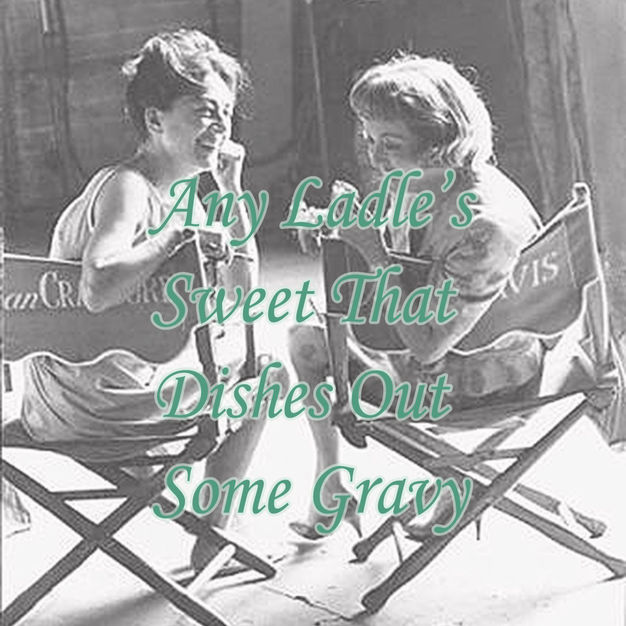 Any Ladle's Sweet That Dishes Out Some Gravy
Any Ladle's Sweet That Dishes Out Some Gravy
 SONGMESS
SONGMESS
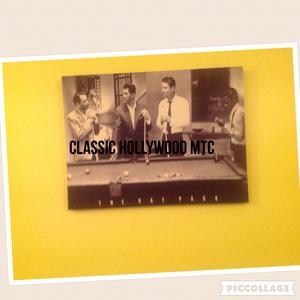 Classic Hollywood MTC Podcasts
Classic Hollywood MTC Podcasts
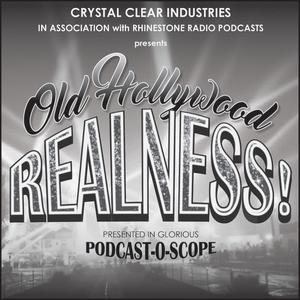 Old Hollywood Realness!
Old Hollywood Realness!
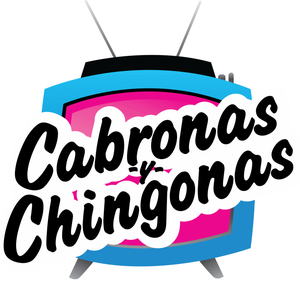 Cabronas y Chingonas
Cabronas y Chingonas
 De Colores Radio
De Colores Radio